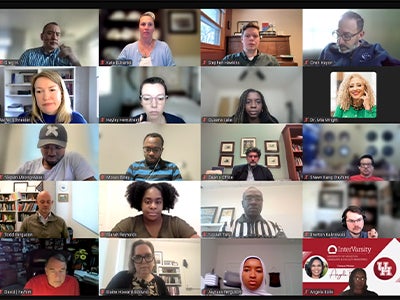The Boniuk Institute's Religion and Public Life Center hosted Duke University sociologist David Eagle for a Religious and Civic Leader Gathering to discuss his work with the Duke Clergy and Religion Research Collaborative, and to speak more in-depth about clergy health and wellbeing.
Based on his research, Eagle says that he would not characterize clergy as being in a state of crisis. However, polarization (particularly political polarization) within congregations is the most significant contributing factor to mental distress and general unhealthiness among mainline Protestant clergy.
Religious leadership is inherently stressful, and it is important to recognize and remember that most religious leaders find their work deeply meaningful. One of the most important ways that distress can be abated is for mentors, church leadership, and seminary faculty to put forth a more positive narrative about a career as a religious leader.
Clergy health and wellbeing can be supported by both congregations and church leadership through the promotion or stress-relieving practices and increased physical fitness, adequate financial support, and clear and consistent politics about supervision and expectations which help to build trust. Community and meaningful relationships with peers is also an important strategy for increased wellbeing.

